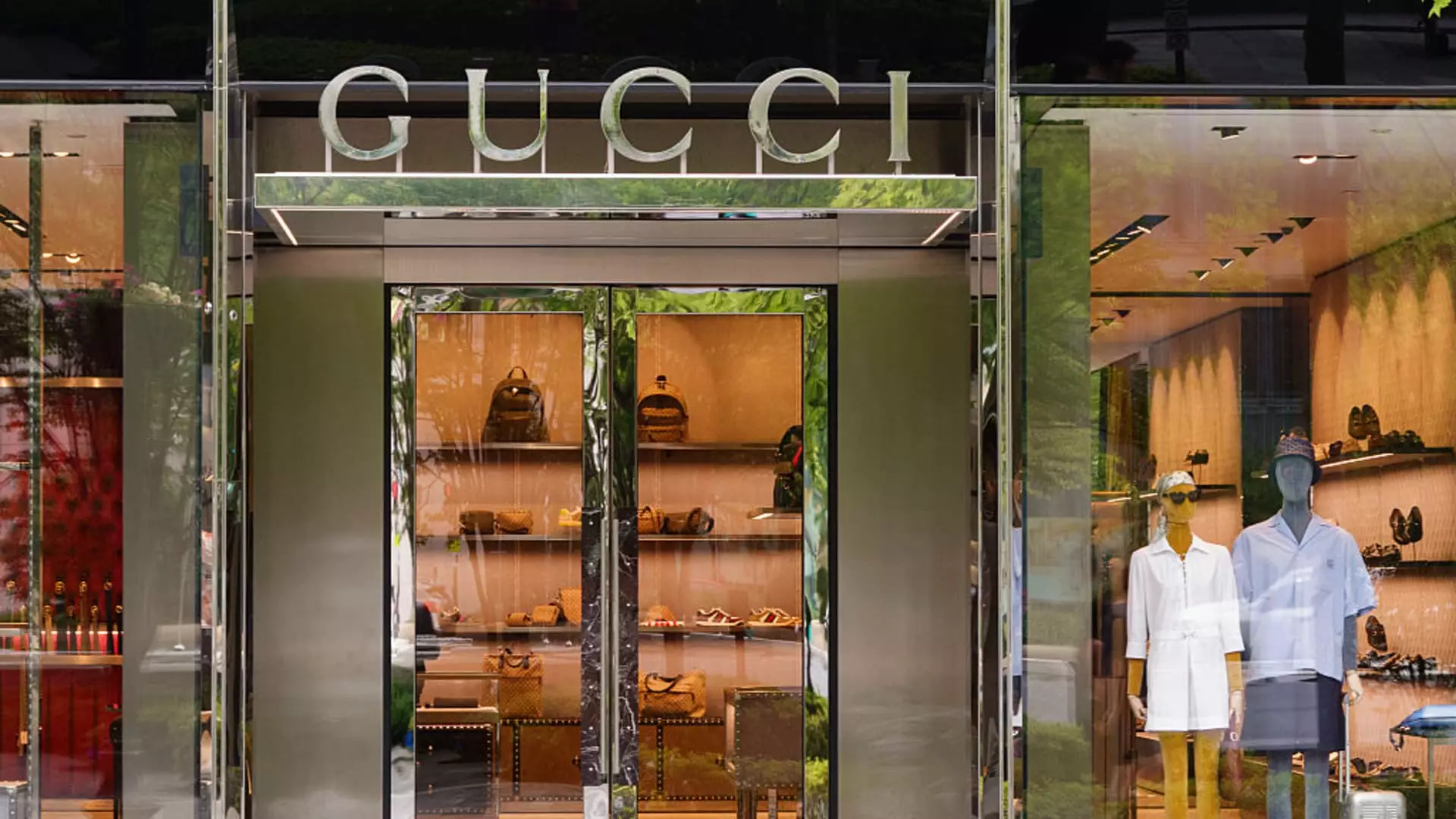When Kering announced the appointment of Luca de Meo, a name synonymous with automotive revitalization, as its new CEO, a wave of optimism washed over the luxury sector, reflected by a noticeable surge in the company’s stock. Yet, this enthusiasm may overshadow the serious risks and considerable challenges that lie ahead for a brand struggling under the weight of declining consumer interest. De Meo’s shift from the automotive industry to the haute couture world raises eyebrows—does the skill set honed over decades at Renault, Toyota, and Volkswagen truly translate to the nuances of luxury fashion? Perhaps this move signals both courage and desperation as Kering seeks to revive its most beleaguered labels, particularly Gucci.
Automotive Expertise Meets Fashion Failure
De Meo’s proven expertise in brand management and marketing, praised by analysts, initially seems like a perfect fit for a luxury brand that is navigating stormy waters. However, Kering’s Gucci has been floundering for too long, with a staggering 60% drop in stock value over the last two years, leaving its reputation tarnished and consumers turned away. While Renault flourished under de Meo’s helm, mirroring a 90% surge in shares, the luxury market is curiously different, and the immediate question arises: can the skills that turned around an automotive company reinstate the allure of Gucci? Despite the powerful turnaround narrative, one must question the genuine applicability of automotive dynamics within the opulent world of fashion.
A Delicate Balancing Act
Kering’s former CEO, Françoiss-Henri Pinault, has been at the reins for two decades, a tenure marked by unparalleled dominance yet also exacerbated issues. Guided by his vision, Kering soared on the coattails of brands like Gucci; however, this reliance has proven precarious. With de Meo’s appointment, speculation around the separation of roles and succession indicates a fundamental reassessment of corporate strategy. While his fresh perspective may challenge the status quo within Kering, it risks alienating stakeholders who may be uncomfortable with an outsider’s influence over an industry steeped in tradition.
Analysts express a cautious optimism, recognizing de Meo’s flair for innovation in Renault. However, unlike the rapid technical stakes of automobiles, the turnaround in Gucci demands a more gradual, intricate approach where consumer preferences are drastically different. The notion that successful techniques in one sector can seamlessly translate into another needs profound examination; should Kering align itself with a leader from a completely foreign industry while their identity lies heavily steeped in couture heritage and glamour?
Consumer Confidence and Brand Loyalty
At the heart of Kering’s current predicament is a waning brand loyalty, especially towards Gucci, which accounts for nearly half of its revenues. The recent plummet in sales—a staggering 25% year-on-year—cannot be brushed aside as a mere blip on the radar; it’s an alarming wake-up call that signals urgent action must be taken. Addressing the decline in consumer enthusiasm goes well beyond leadership changes; it requires a recalibration of the brand’s value proposition, ultimately reestablishing trust and desirability among discerning luxury consumers.
De Meo’s tenure will need substantive results to convince critics that he is the catalyst for a renaissance rather than a further descent into mediocrity. As the luxury market grapples with evolving consumer preferences and economic uncertainties, merely pivoting in leadership might not suffice. If Kering’s internal culture bucks against innovation or resistant to changes in how luxury is marketed and experienced, it risks becoming an echo of a once-great empire.
The Future of Kering: A Balancing Act Between Innovation and Tradition
The paramount question remains: can Kering successfully blend de Meo’s automotive innovation with the distinctive artistry intrinsic to luxury fashion? If Gucci’s lagging sales and consumer discontent are to be remedied, the focus must shift to genuine consumer engagement and the brand’s narrative, rather than exclusively technical brand management. This juxtaposition of challenges is not just about securing a profit margin but also about rekindling the allure of fashion that makes these brands timeless symbols of prestige.
As Kering embarks on this uncertain journey with an industry outsider at the helm, the future hinges on a delicate balance between embracing transformative change and respecting enduring traditions. Only then can they hope to stir a renaissance and resurrect the captivating dream that luxury fashion offers—a hope that has dimmed under the harsh glare of current performance metrics.

